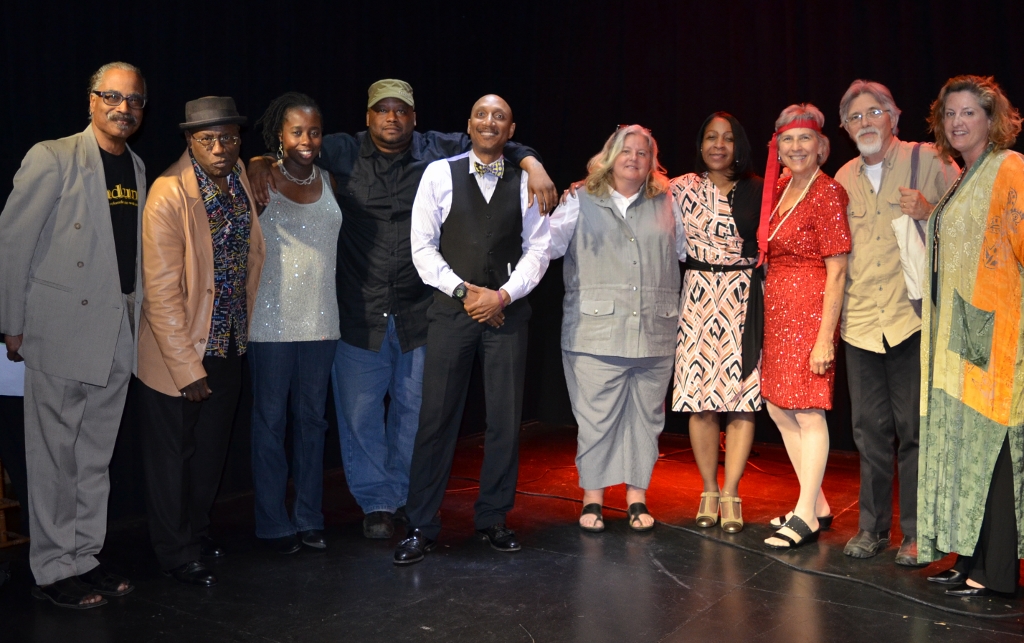S. Bryan Medina on the Life of Fresno Poetry and Spoken Word
S. Bryan Medina is a former student of U.S. poet laureate Juan Felipe Herrera and his poetry has graced stages in the San Francisco Bay Area, Los Angeles, Las Vegas, and Kansas City. He founded the Inner Ear as a way to free poetry from the confines of academic institutions, making it accessible to all. Medina has been awarded two City of Fresno Commendations, including the 2014 Fresno Arts Council Horizon Award, for contributions to the rich artistic and cultural heritage in Fresno, California. He has been featured as one of the four “Fresno Poets” from writer Nick Belardes’s Distinguished Valley Writers series, and he was an honorable mention for the 2006 Larry Levis Poetry Prize. His work has appeared in journals such as Flies, Cockroaches, and Poets, In the Grove, the San Joaquin Review, Jubilee, and Invisible Memoirs. Medina is a recent graduate of Fresno Pacific University and plans to teach special education.
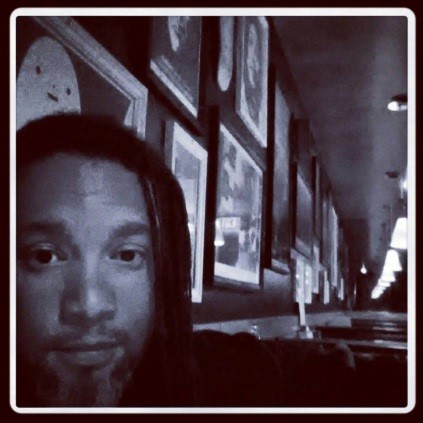 “Poets here (in Fresno) write killer poems in our unapologetic heat, the exhaust of the traffic, or the dream-inducing tule fog.” —Fresno poet laureate Lee Herrick, author of Gardening Secrets of the Dead (WordTech Editions, 2012)
“Poets here (in Fresno) write killer poems in our unapologetic heat, the exhaust of the traffic, or the dream-inducing tule fog.” —Fresno poet laureate Lee Herrick, author of Gardening Secrets of the Dead (WordTech Editions, 2012)
Central Valley writers seem to revel in Fresno’s bad air and harsh laundry line of obstacles. Its writing history comes from just underneath its rich soil, from the bent backs of field laborers to the city’s war on drugs against the black market methamphetamine trade. The place often found at the top of many “Worst Cities in America” lists now can add to its reputation little to no water, thanks to the drought.
Still, Fresnans continue to find bars and converted backyard stages, open mics and coffee houses, filled with hungry ears eagerly listening for their favorite local poet to say one more thing just before the familiar, “Are y’all ready for the next poet?!” I’m proud to be a part of this scene, now thirteen years strong, keeping spoken word/poetry in the forefront of people’s minds here in the valley by forging and solidifying relationships, such as the one I have with Poets & Writers.
The Inner Ear’s mission is to collaborate with local and national artists utilizing spoken word, art, performance, and music to promote further interest in the arts in Fresno and the Central Valley. The Inner Ear/Beat Down Slam events serve the community by providing a forum for constructive and creative expression in a positive and supportive environment, offering an alternative to violence among Fresno County teens and young adults. The Inner Ear mixes formal poetry aesthetics with rap flair and vitality by taking poetry away from the ivory tower of the universities and moving it to a place where everyone has access. Over the past decade, we have had many participants say that our stage was their first.
This October finds the Inner Ear beginning a yearlong collaboration with the Fresno Grand Opera. Breaking new ground with its first Opera Remix: Music & Verse event, an exciting mix of local spoken word artists and opera musicians will perform together live on the stage of the historic Tower Theater in Fresno’s Tower District. In the months between this and next year’s event, we are excited to get the chance to work with composer Jakes Heggie and Librettist John de los Santos, and share new music by composer Ricky Ian Gordon (Grapes of Wrath) from the Metropolitan Opera in New York!
On November 12, the Inner Ear celebrates its thirteenth anniversary with a tribute to fellow Fresno poet and former U.S. poet laureate Philip Levine, which will feature poets Corrinne Hales and Lee Herrick with other local writing notables, and music by Benjamin Boone. If you have never experienced in person one of our blowout anniversary events, you're missing what the Fresno scene is all about: fun, exciting, deep, edgy, and funny performances with live music and special guests all happening at the Fresno Art Museum.
To some, poetry is a mystical, invisible power—energizing raw, untamed thoughts put to paper or read aloud in public places. But here in the valley, that slow rhythmic sound you hear is the tactile heart of Fresno’s present, future, and past: the shadow of Philip Levine saying “What Work Is,” the familiar mustache and glasses of Juan Felipe Herrera, the mournful prose of an Andres Montoya poem. Poets here have to write killer poems and produce worthwhile poetry events that are as tangible as the fruit grown here, in the middle of nowhere, where we’re right at home, struggling.
Photo: S. Bryan Medina Credit: S. Bryan Medina
Major support for Readings & Workshops in California is provided by the James Irvine Foundation and the Hearst Foundations. Additional support comes from the Friends of Poets & Writers.






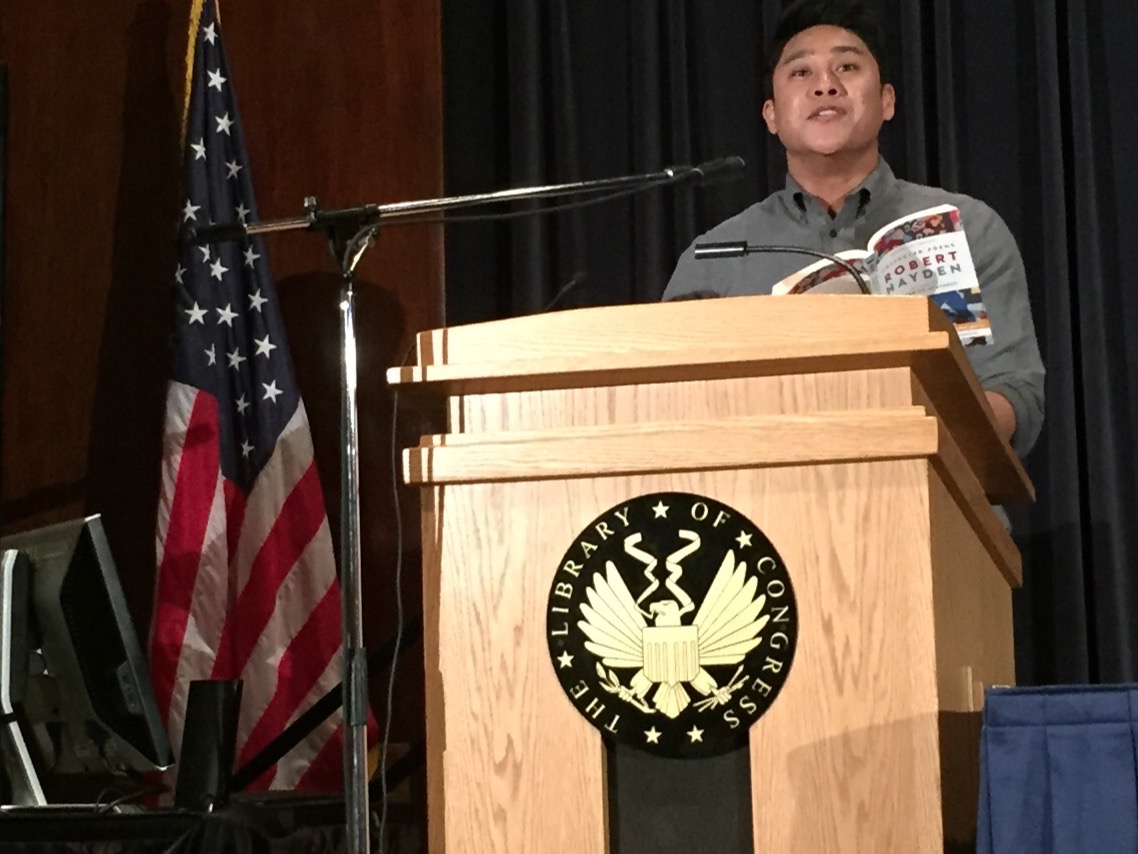
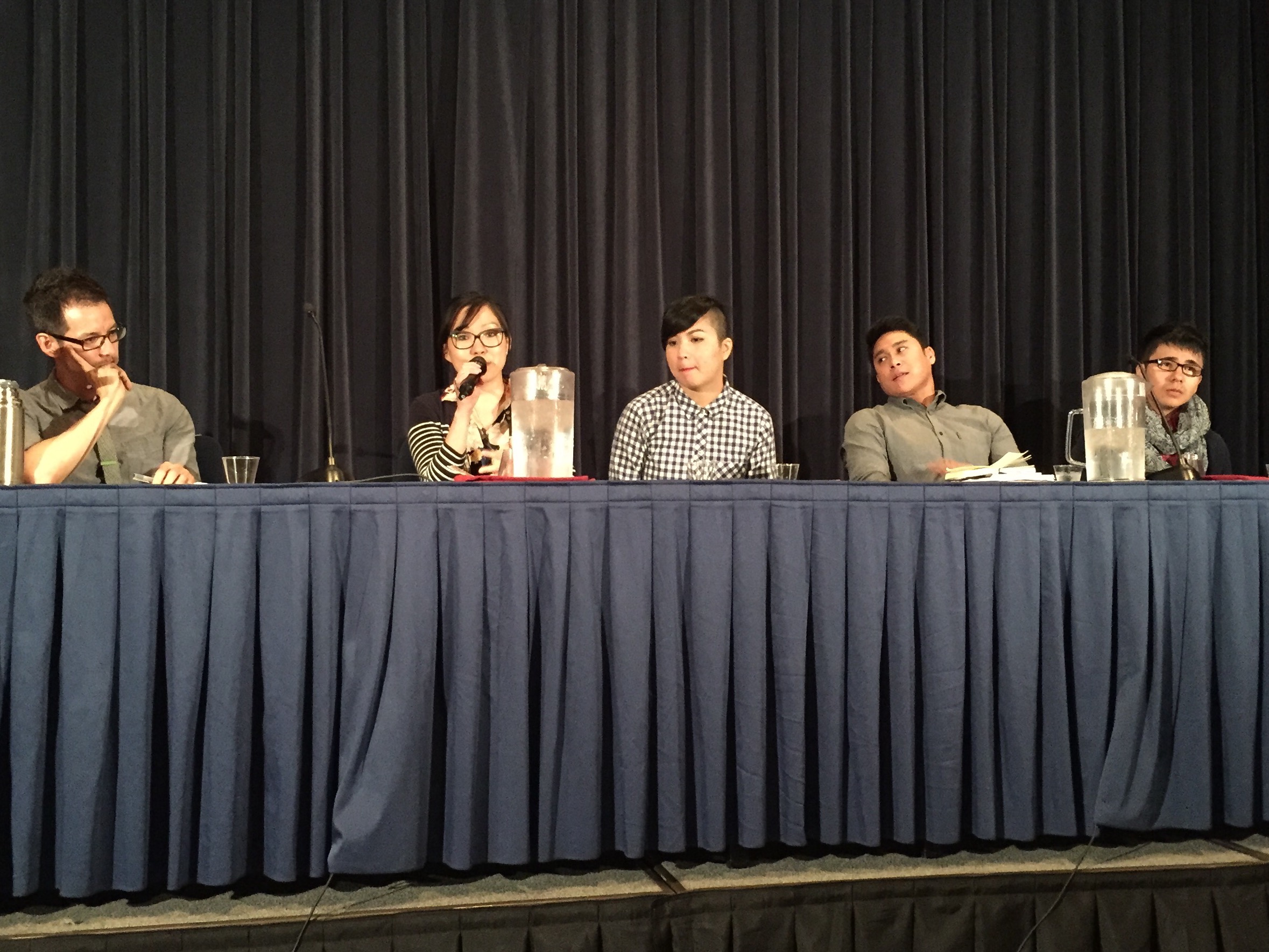
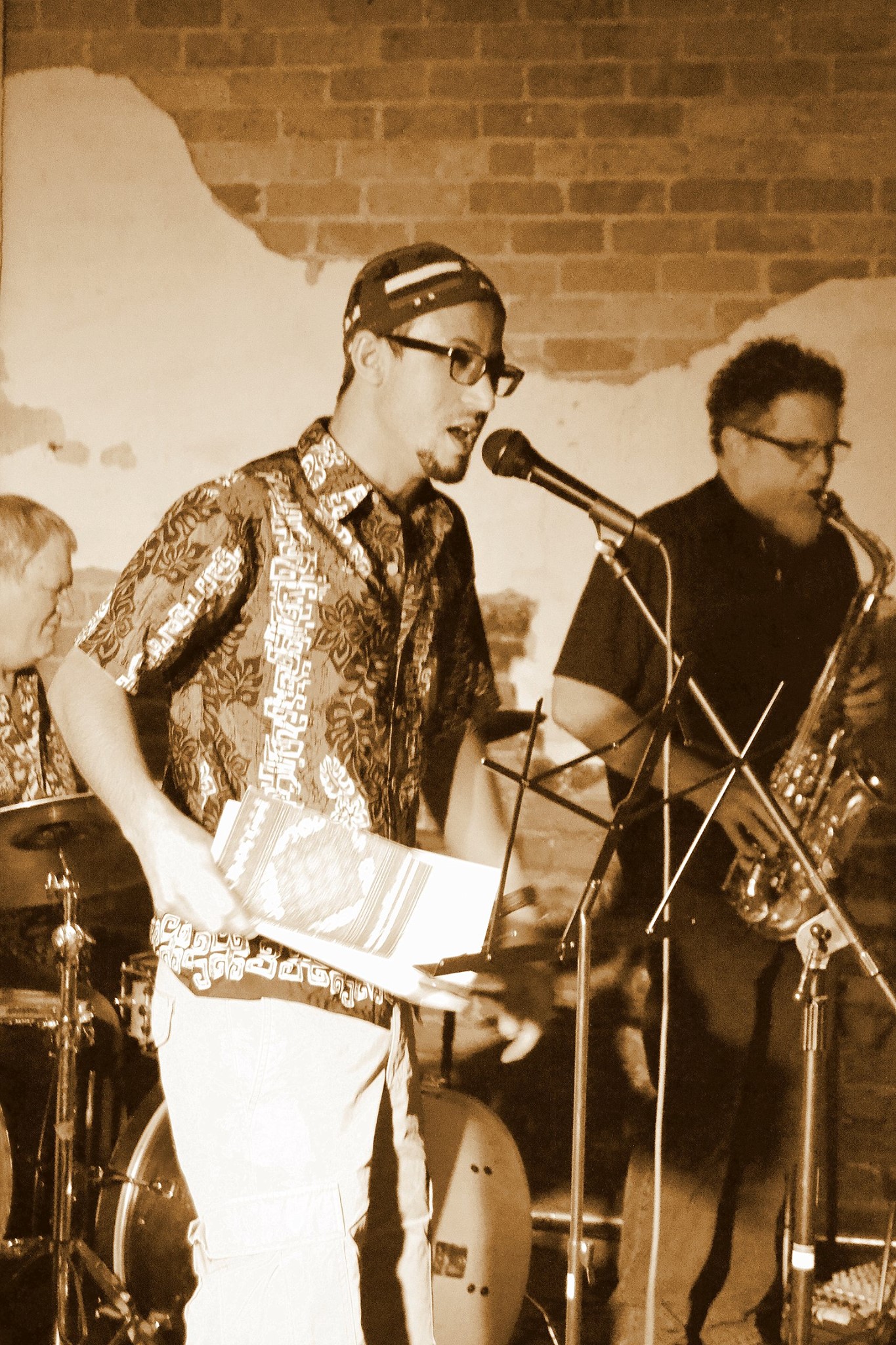 Poet and translator El Habib Louai, a resident of Agadir, Morocco, performed with a killer band of free jazz all-stars in a show produced by Surregional Press of Slidell, Louisiana. Poets & Writers partially funded the performance, which took place on July 31 at the Zeitgeist Theater in New Orleans.
Poet and translator El Habib Louai, a resident of Agadir, Morocco, performed with a killer band of free jazz all-stars in a show produced by Surregional Press of Slidell, Louisiana. Poets & Writers partially funded the performance, which took place on July 31 at the Zeitgeist Theater in New Orleans.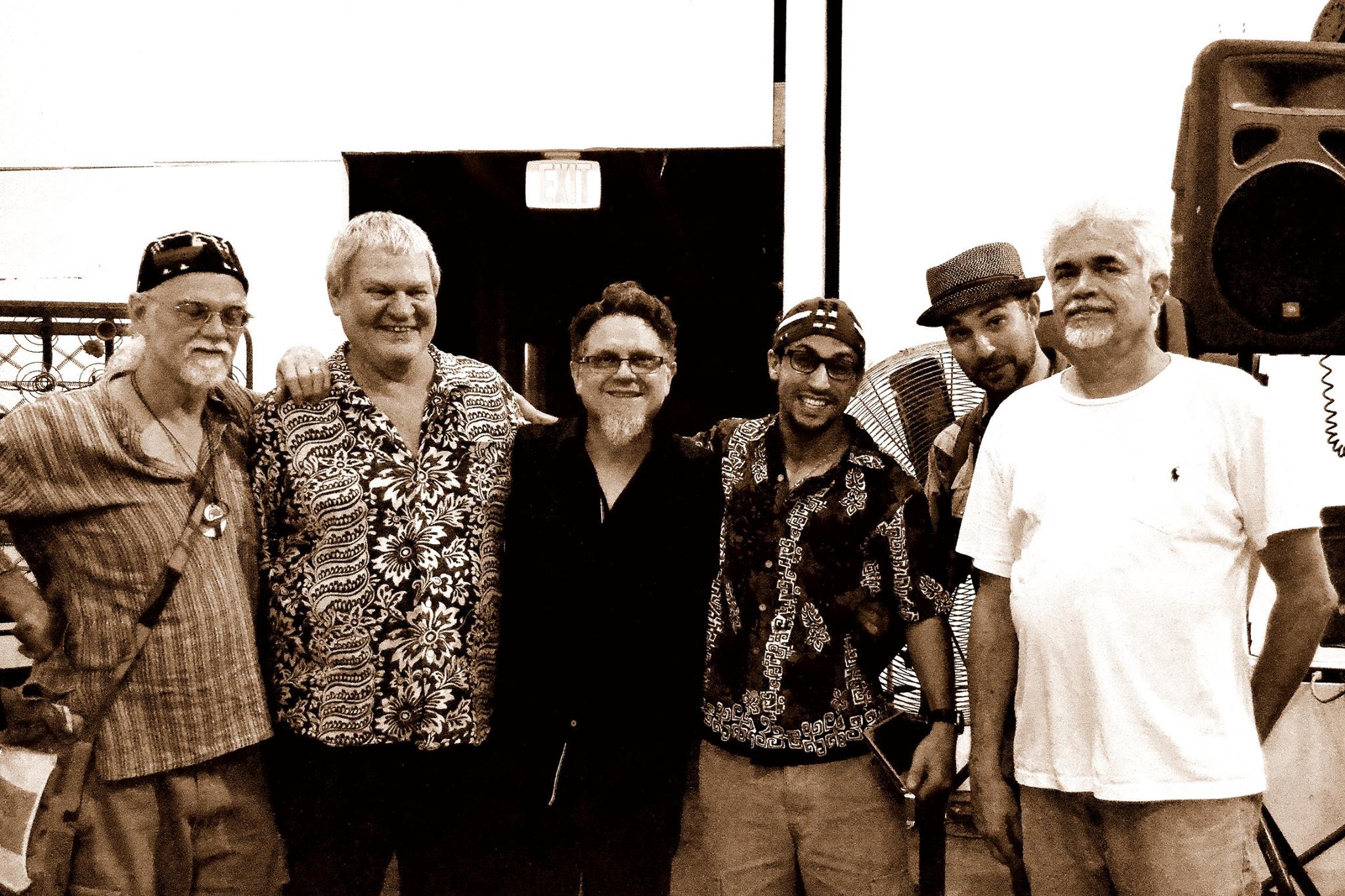
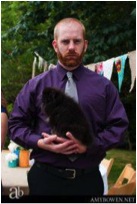 It was an unseasonably hot May morning in the San Francisco Bay when I pulled up to the Berkeley address where author Coe Booth was staying. Sweat dripped down my forehead and into my eyes as I anxiously knocked on the door. I was nervous!
It was an unseasonably hot May morning in the San Francisco Bay when I pulled up to the Berkeley address where author Coe Booth was staying. Sweat dripped down my forehead and into my eyes as I anxiously knocked on the door. I was nervous!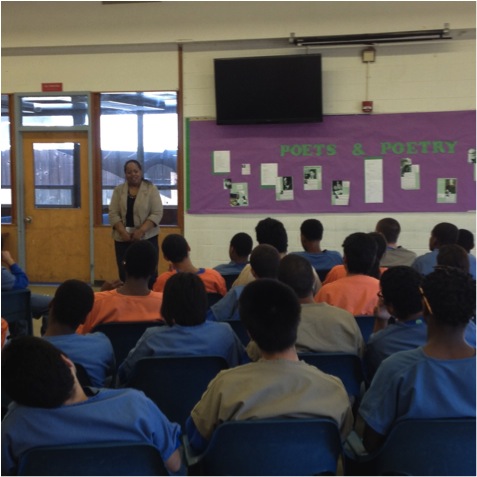 Coe spent just over two hours with the young men. As we drove back to Berkeley through the shimmering, midday heat, my car’s air conditioning sadly failing us once again, I was struck by how she was both down-to-earth and larger-than-life.
Coe spent just over two hours with the young men. As we drove back to Berkeley through the shimmering, midday heat, my car’s air conditioning sadly failing us once again, I was struck by how she was both down-to-earth and larger-than-life.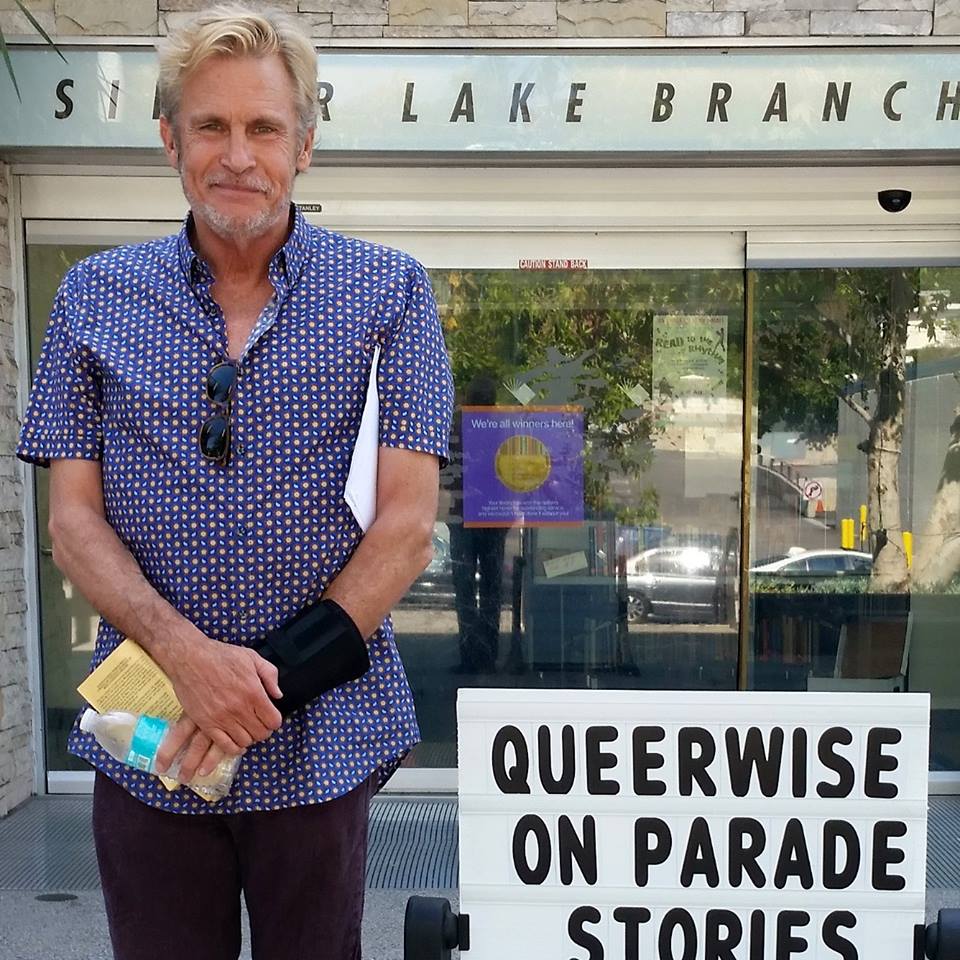 What makes your workshops unique?
What makes your workshops unique?
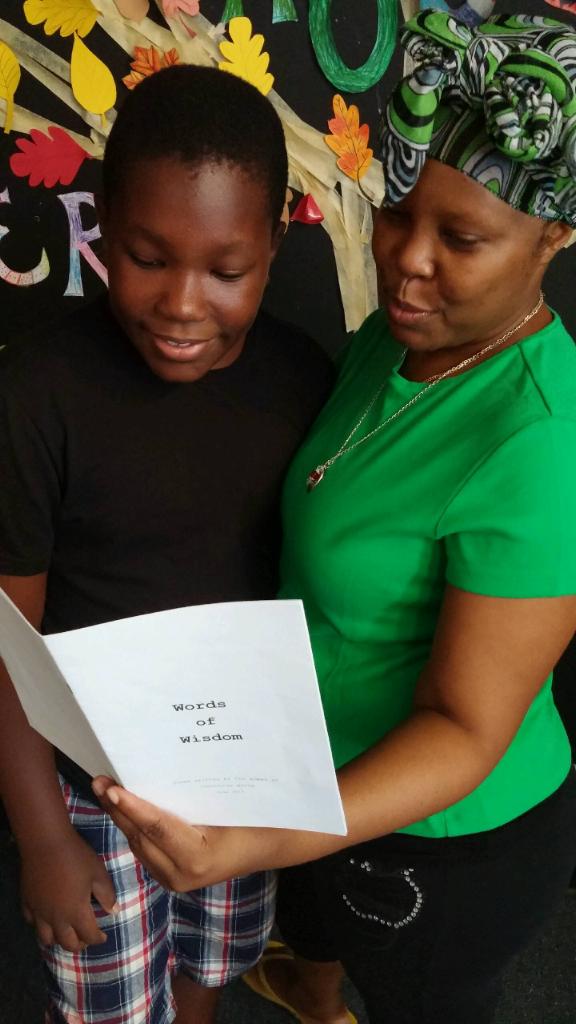
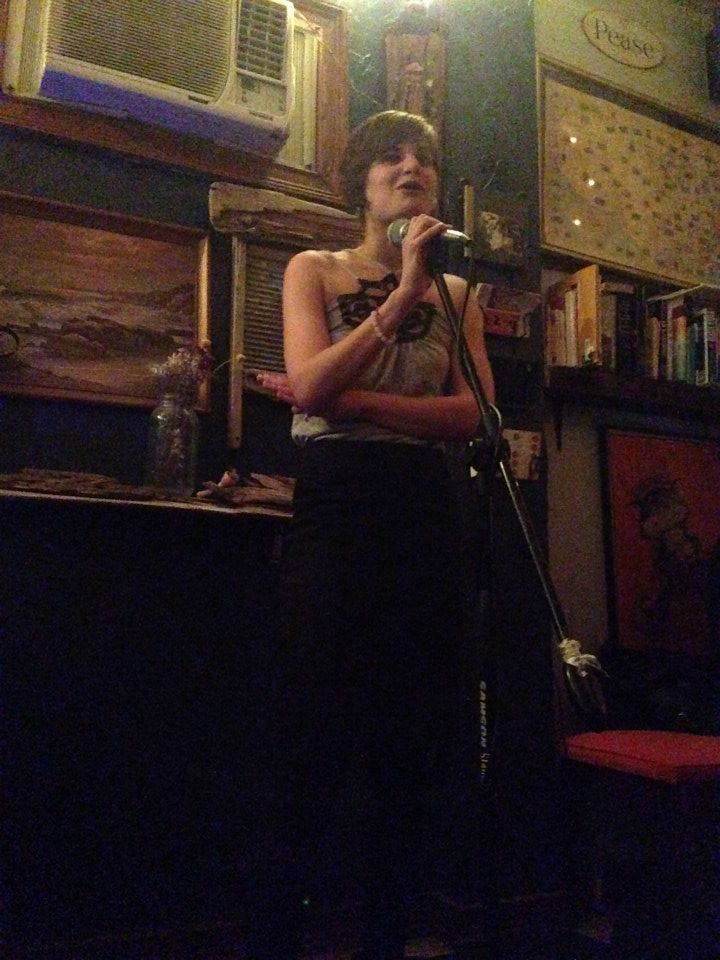 As poets and artists, we have all contributed our time, work, and creative energies for things that we believe in, whether for a nascent (or not-so-nascent) publication, an event, or a cause. But it’s really great to get paid.
As poets and artists, we have all contributed our time, work, and creative energies for things that we believe in, whether for a nascent (or not-so-nascent) publication, an event, or a cause. But it’s really great to get paid.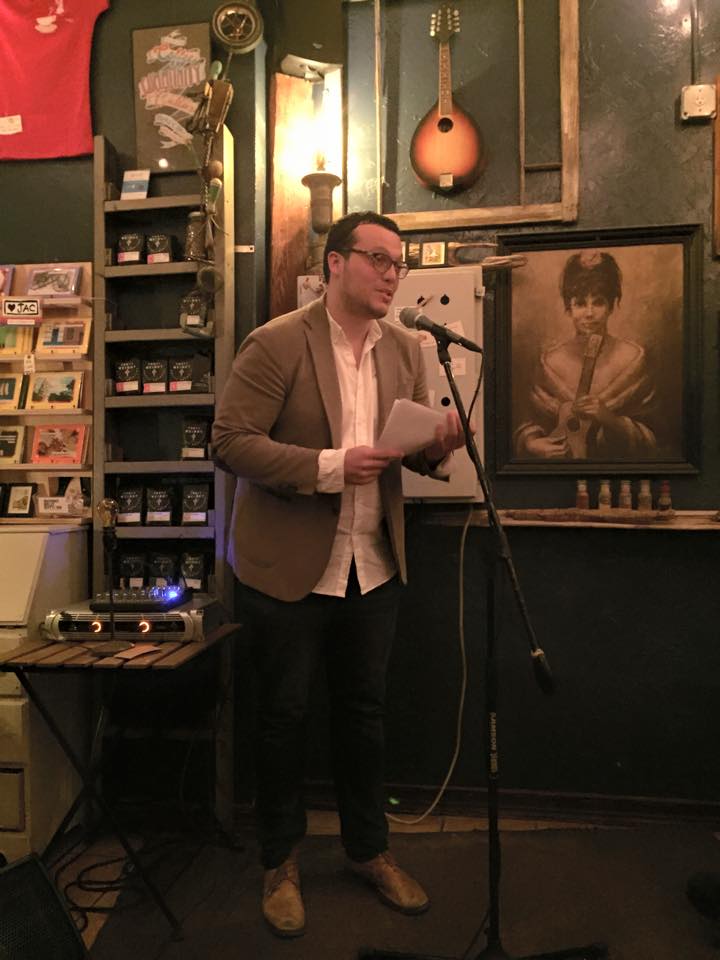 Roots Poetry Series is always free, with beer and wine served in exchange for cash donations. (After all, where there are poets, there has to be wine.) Our next event will take place on Friday, August 18 at 8:00 PM, when we will welcome Kyle Dargan, Sara Jane Stoner, Mary Austin Speaker and Justin Petropoulos. And stay tuned for news about our November one year anniversary reading, for which we’re inviting back all of our Roots Poetry alumni for a roundup reading.
Roots Poetry Series is always free, with beer and wine served in exchange for cash donations. (After all, where there are poets, there has to be wine.) Our next event will take place on Friday, August 18 at 8:00 PM, when we will welcome Kyle Dargan, Sara Jane Stoner, Mary Austin Speaker and Justin Petropoulos. And stay tuned for news about our November one year anniversary reading, for which we’re inviting back all of our Roots Poetry alumni for a roundup reading.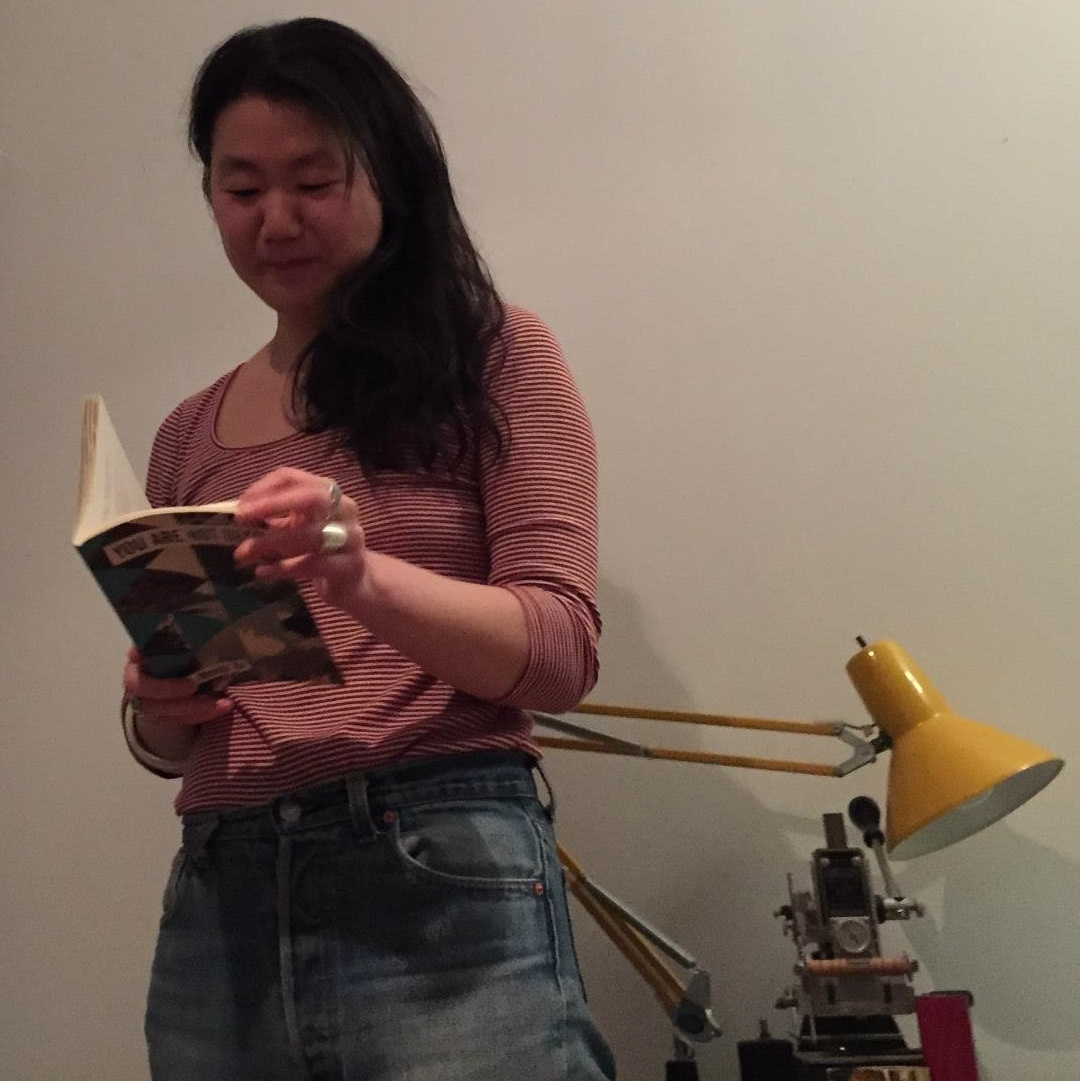 APRIL has built more than one hundred events in four years with the idea that not all readings should consist of an author standing behind a podium. Sometimes you need a gimmick to draw in new audiences.
APRIL has built more than one hundred events in four years with the idea that not all readings should consist of an author standing behind a podium. Sometimes you need a gimmick to draw in new audiences.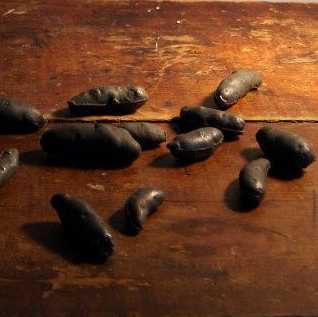

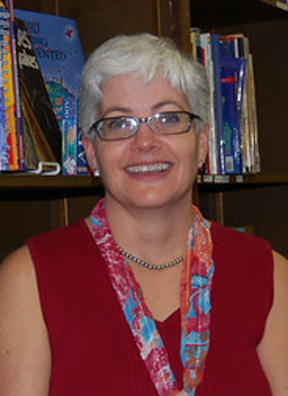
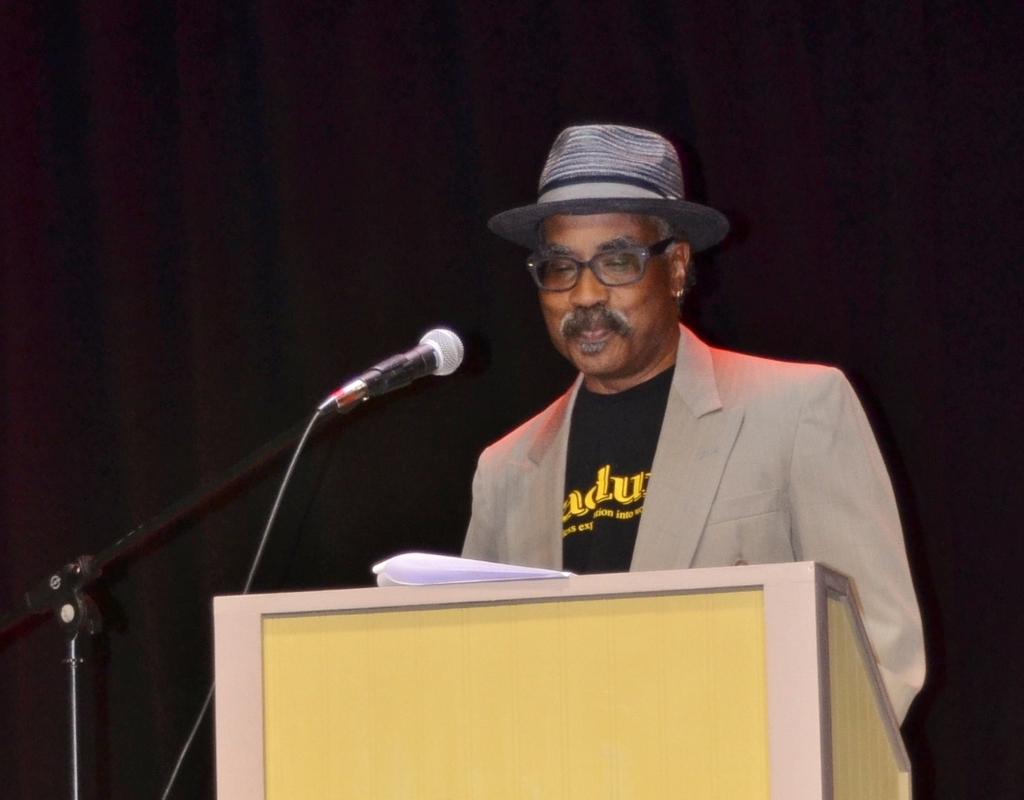
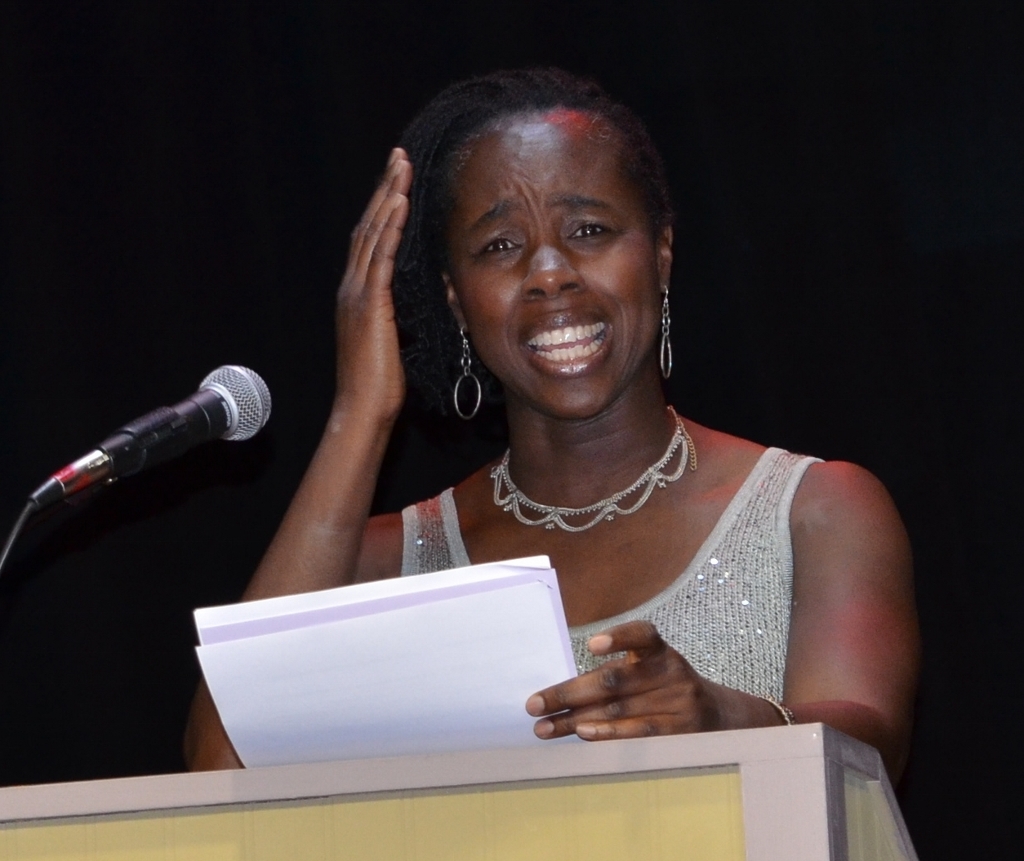 The Thursday evening event (which recognized that “back in that era” Thursdays were the day off for domestics who used the day to socialize and party) was filled with words that articulated stories and explored experiences that extolled James Brown, jazz syncopations through the diaspora, raising chickens, urban reflections, multi-racial upbringing, intimate reflections on life, Sly Stone, and love. Readers delivered their work in two rounds, and welcomed the guests when the doors opened and interacted with them during an extended intermission, a central component of this affair—the ability for the artists and guests to lessen the “divide” that often separates creative people from the public. The intermission was “the party within the party.” With a backdrop of jazz and contemporary tunes, pianist Andy Rudy set the ambiance complemented by a
The Thursday evening event (which recognized that “back in that era” Thursdays were the day off for domestics who used the day to socialize and party) was filled with words that articulated stories and explored experiences that extolled James Brown, jazz syncopations through the diaspora, raising chickens, urban reflections, multi-racial upbringing, intimate reflections on life, Sly Stone, and love. Readers delivered their work in two rounds, and welcomed the guests when the doors opened and interacted with them during an extended intermission, a central component of this affair—the ability for the artists and guests to lessen the “divide” that often separates creative people from the public. The intermission was “the party within the party.” With a backdrop of jazz and contemporary tunes, pianist Andy Rudy set the ambiance complemented by a 